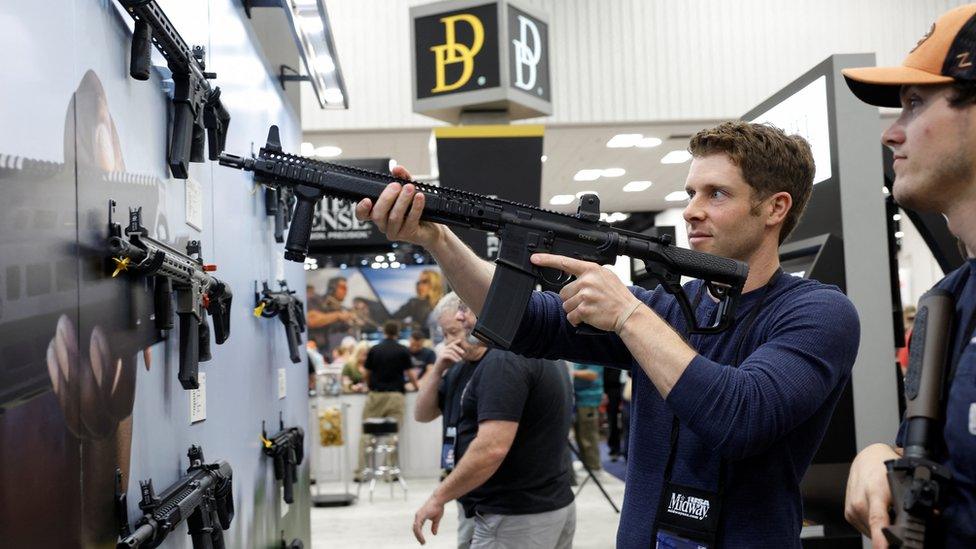Why some people are spreading false rumours about the Texas gunman
- Published
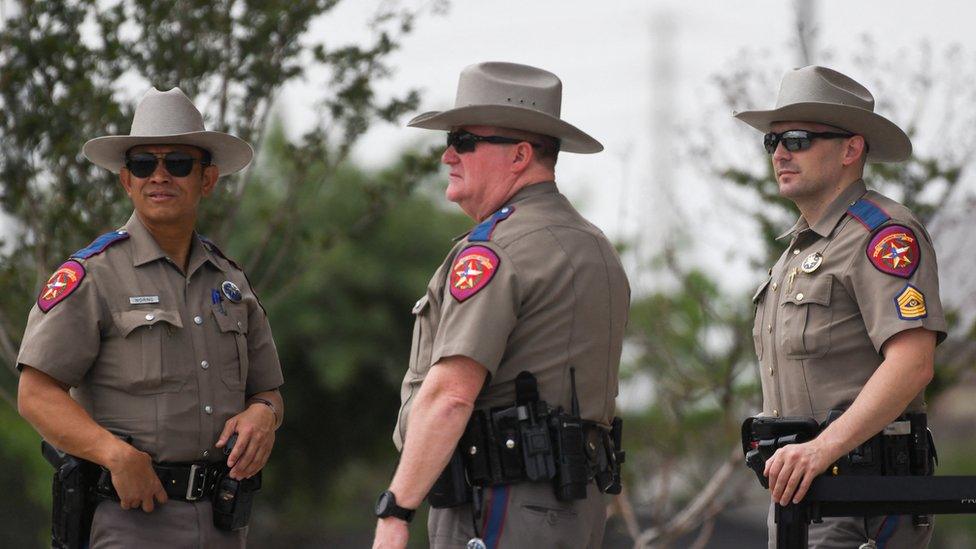
Allen Police on the scene at the mall on Sunday
Social media posts by the man who killed eight people at a mall in Texas show he was deep into neo-Nazi and far-right imagery and propaganda.
But some activists have tried to cast doubt on the authenticity of the posts.
They're claiming - without evidence - that the material is somehow part of a "psychological operation" or that the social media account is "fake".
It may seem fringe, but the doubts have spread to millions via Elon Musk and others with popular Twitter accounts.
Six people, including children, were pronounced dead at the scene in the north Dallas suburbs on Saturday, while two died later in hospital.
The suspect, named by police as Mauricio Garcia, used an AR-15 style rifle and wore combat tactical gear during the shooting.
Garcia, police say, wore a patch reading "RWDS", short for "Right Wing Death Squad" - a phrase commonly referenced by hate groups.
Hank Sibley, regional director of the Texas Department of Public Safety, said in a press conference on Tuesday that the motivation for the shootings was still under investigation, and that the victims appear to have been chosen at random.
"We do know he had neo-Nazi ideation," he said. "We're trying to find what he looked at [online] and trying to find any information we can."
Mr Sibley said investigators were continuing to examine Garcia's electronic devices and social media posts.
What did the suspect post?
Garcia posted a huge variety of material on a lightly-moderated, Russia-based site named Odnoklassniki. The account was mentioned in news reports and uncovered by the investigative outlet Bellingcat.
His posts included pictures of a swastika tattoo, long violent screeds, and pictures of the mall taken as recently as last month - interspersed with other pictures of boxes of ammunition and guns.
Other posts praised Nazis and the Chilean dictator Augusto Pinochet, who is often feted by people who use the "Right Wing Death Squad" phrase.
He directly addressed his ethnic background in one meme he posted which mentioned "Latino children" and the phrase "become white supremacist".
How do we know the account was his?
The BBC has examined the material and we can be confident the suspect was the person behind the posts.
Garcia appeared to use the account, on a social network popular in Russia, as an online diary. He posted multiple documents including his name, date of birth and other identifying details, including a plane ticket, a speeding ticket and an ID card.
Photos on the account also showed a distinct tattoo on his hand, which matches a graphic video of Garcia's dead body taken at the scene of the shooting.
The shooter also posted images of the mall and its location on Google Maps, including the time the mall had the highest number of visitors, weeks in advance.
In addition, open-source investigators found a YouTube channel with a video showing Garcia taking off a mask. Material on the channel was also posted on the Odnoklassniki account.
Who's spreading false rumours?
Despite the clear evidence, several activists and internet personalities, including at least one mentioned in Garcia's posts, have attempted to cast doubt on the authenticity of the material. They've claimed, without evidence, that it's part of a "psychological operation" or "false flag" by the government to smear those on the right or far-right.
A number of posts spreading the false rumours were viewed millions of times. Among them, one by Twitter chief Elon Musk called the fact the suspect had an account on a Russian platform "very odd" and in another message said it was "either the weirdest story ever or a very bad psyop!"
Allow X content?
This article contains content provided by X. We ask for your permission before anything is loaded, as they may be using cookies and other technologies. You may want to read X’s cookie policy, external and privacy policy, external before accepting. To view this content choose ‘accept and continue’.
However, Odnoklassniki has an English interface, and its lax content moderation policies mean extreme content is less likely to be taken down. Mr Musk and Twitter's communications team did not respond to a request for comment.
The podcaster Tim Pool, a former Occupy Wall Street supporter and Vice News reporter, was among those mentioned several times in the suspect's posts.
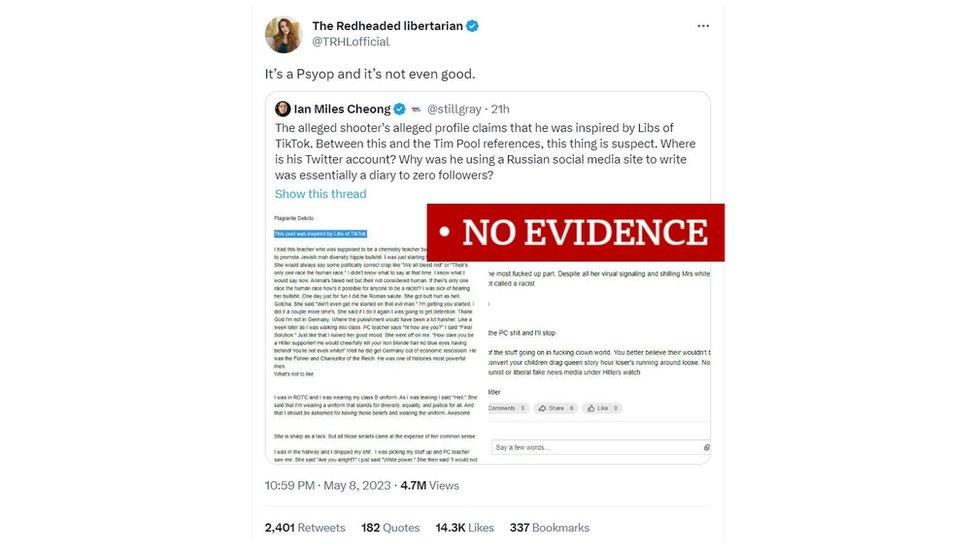
Posts claiming the shooter's account on a Russian platform was a "psyop" were viewed millions of times
There's no evidence that Garcia was inspired to action by Mr Pool's podcasts, which cover right-wing talking points and conspiracy theories.
But Mr Pool immediately tried to cast doubt on the veracity of the material, accusing those digging up the material as being part of a "psyop".
Mr Pool did not respond to requests for comment.
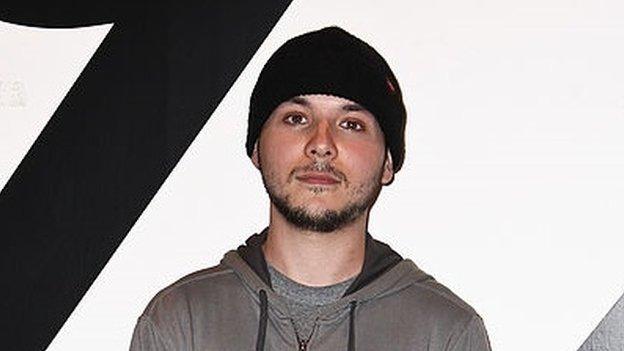
Tim Pool, pictured in this photo from 2012, spread false rumours about the suspect's social media accounts
Adding to the misinformation were a photo of a man who shared a name with the suspect which circulated widely online, and several viral posts have claimed the gunman was part of a Mexican cartel or drug gang. Police said during Tuesday's press conference that he had no prior criminal record.
Related topics
- Published8 May 2023
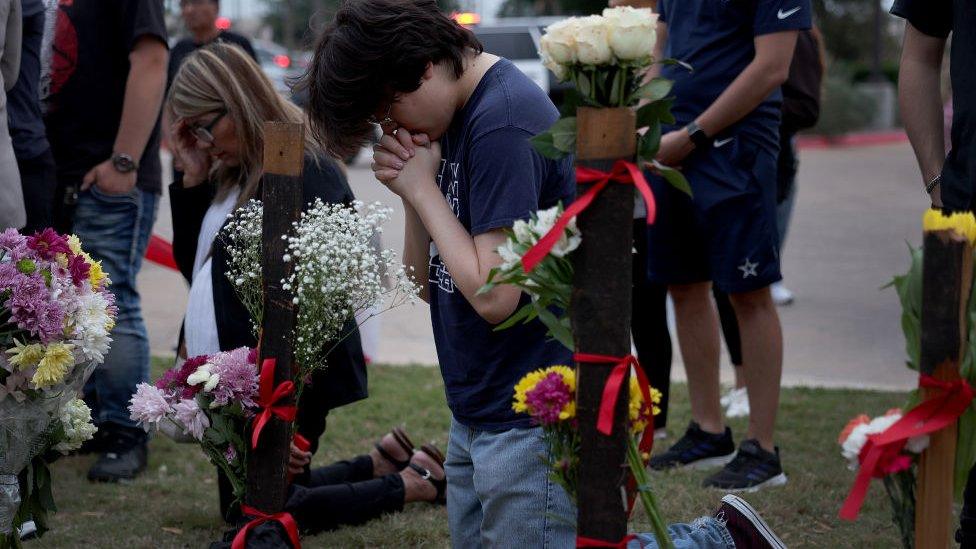
- Published9 May 2023
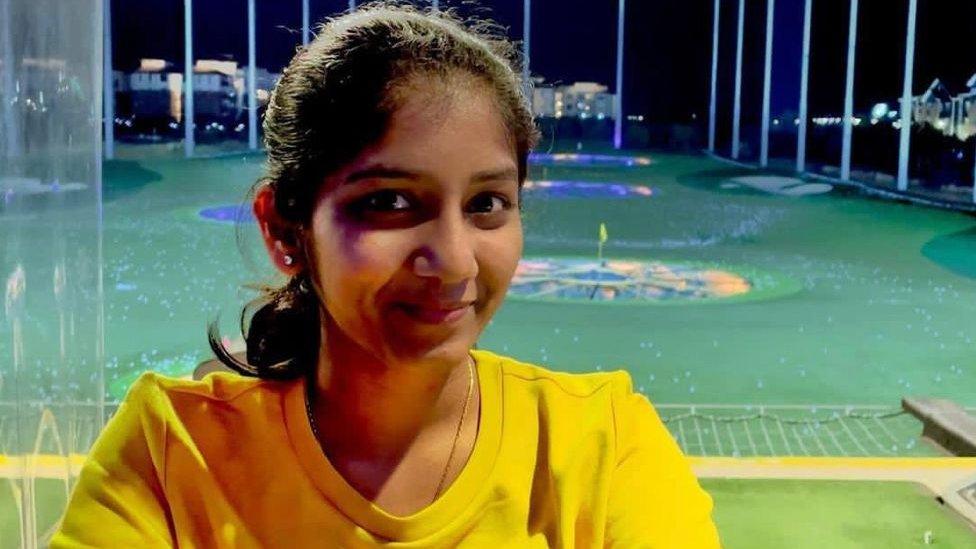
- Published17 December 2024
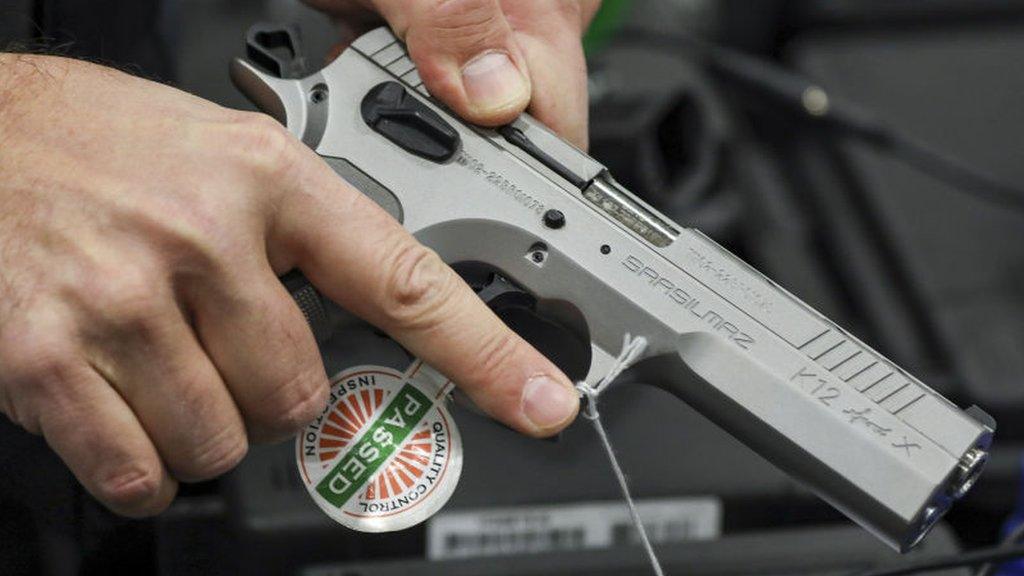
- Published15 April 2023
